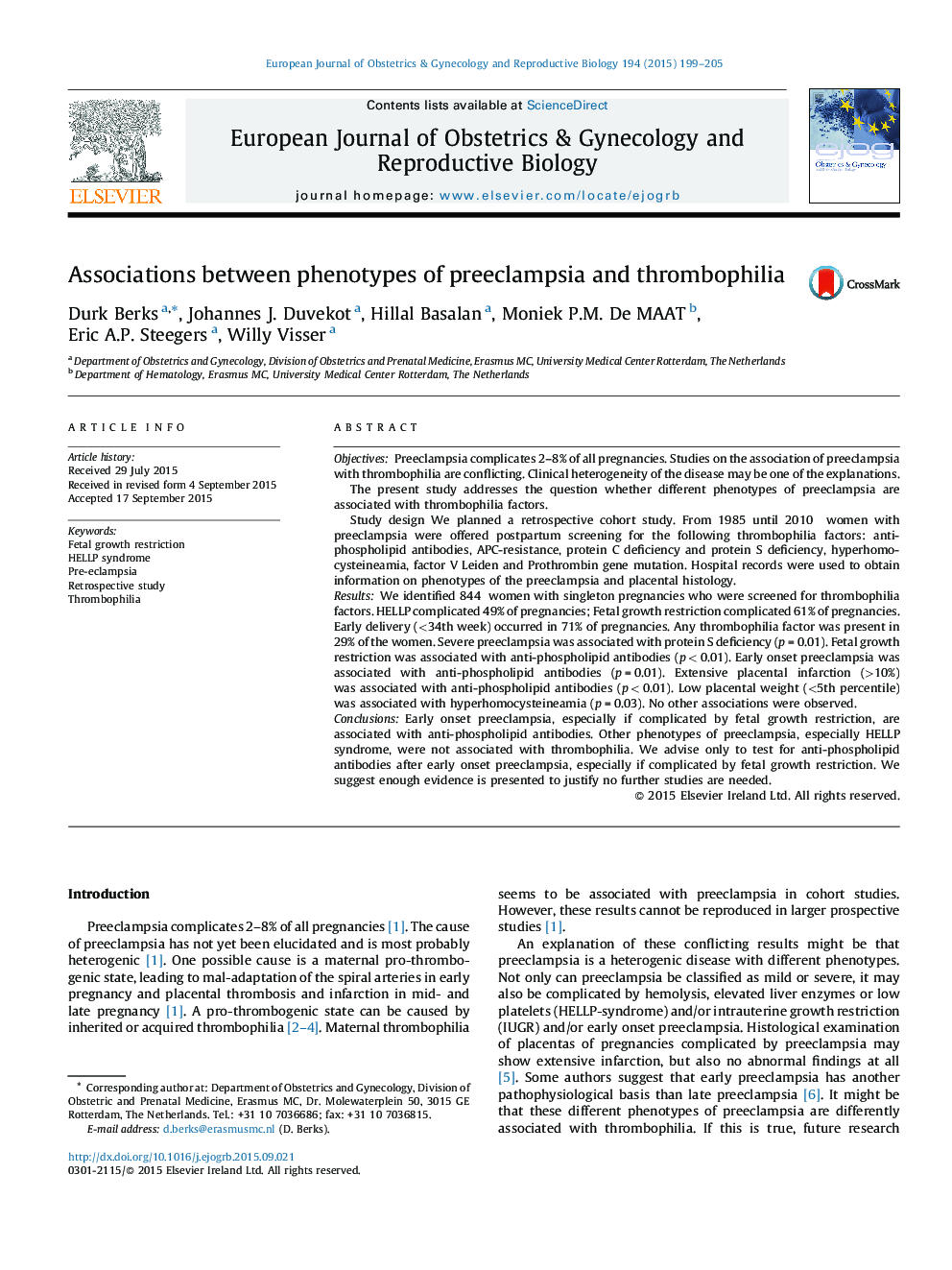| کد مقاله | کد نشریه | سال انتشار | مقاله انگلیسی | نسخه تمام متن |
|---|---|---|---|---|
| 6173107 | 1599787 | 2015 | 7 صفحه PDF | دانلود رایگان |
ObjectivesPreeclampsia complicates 2-8% of all pregnancies. Studies on the association of preeclampsia with thrombophilia are conflicting. Clinical heterogeneity of the disease may be one of the explanations.The present study addresses the question whether different phenotypes of preeclampsia are associated with thrombophilia factors.Study design We planned a retrospective cohort study. From 1985 until 2010 women with preeclampsia were offered postpartum screening for the following thrombophilia factors: anti-phospholipid antibodies, APC-resistance, protein C deficiency and protein S deficiency, hyperhomocysteineamia, factor V Leiden and Prothrombin gene mutation. Hospital records were used to obtain information on phenotypes of the preeclampsia and placental histology.ResultsWe identified 844 women with singleton pregnancies who were screened for thrombophilia factors. HELLP complicated 49% of pregnancies; Fetal growth restriction complicated 61% of pregnancies. Early delivery (<34th week) occurred in 71% of pregnancies. Any thrombophilia factor was present in 29% of the women. Severe preeclampsia was associated with protein S deficiency (p = 0.01). Fetal growth restriction was associated with anti-phospholipid antibodies (p < 0.01). Early onset preeclampsia was associated with anti-phospholipid antibodies (p = 0.01). Extensive placental infarction (>10%) was associated with anti-phospholipid antibodies (p < 0.01). Low placental weight (<5th percentile) was associated with hyperhomocysteineamia (p = 0.03). No other associations were observed.ConclusionsEarly onset preeclampsia, especially if complicated by fetal growth restriction, are associated with anti-phospholipid antibodies. Other phenotypes of preeclampsia, especially HELLP syndrome, were not associated with thrombophilia. We advise only to test for anti-phospholipid antibodies after early onset preeclampsia, especially if complicated by fetal growth restriction. We suggest enough evidence is presented to justify no further studies are needed.
Journal: European Journal of Obstetrics & Gynecology and Reproductive Biology - Volume 194, November 2015, Pages 199-205
